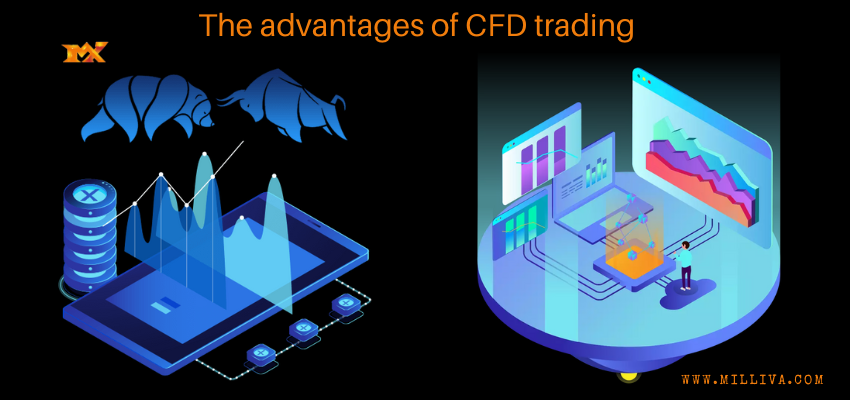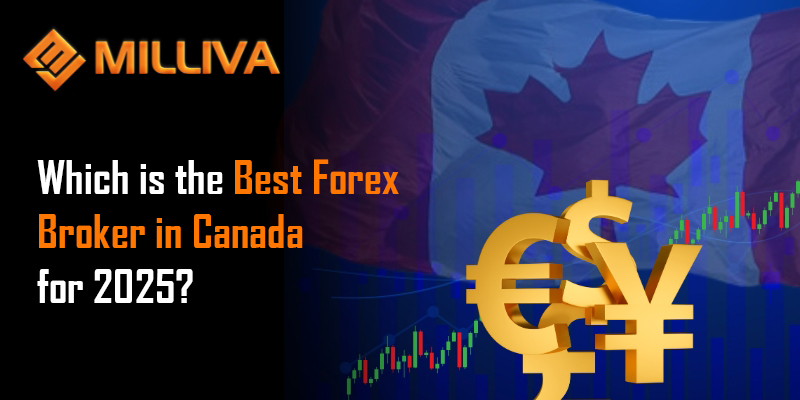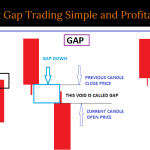The Advantages of CFD Trading

![]()
Due to its capacity to optimize capital investments and, thus, raise your prospective gains or losses, contract-for-difference (CFD) trading is a well-liked substitute for conventional investing. Over the past ten years, this kind of forex trading has gained popularity, especially since certain brokerage firms now offer negative balance protection to prevent severe losses from pushing your trading account into the red.
What are the benefits of CFD trading then? Here are a few more of the main advantages.
Trading With Great Leverage
In more conventional investment vehicles, traders must deposit their entire capital in a transaction in order to open a position. Consider the typical manner in which most traders buy stocks: You must invest the entire $1,000 if you want $1,000 worth of stock.
However, the current margin requirement for initiating a position in CFD trading is simply 5%. Traders can earn more money because less is needed to initiate a position. For instance, you just need to set out $50 to invest if you want to create a $1,000 stake in a forex pairing. You are still free to commit to other positions with the remaining $950, though.
Negative balance protection can help to lessen this risk even though this method does have the potential to result in noticeably bigger losses. This has a net beneficial effect when you’re seeking to use leverage to increase your potential gains.
Lot Size Flexibility
Because CFD holdings may be volatile, a number of brokers offer a range of scalable trade-size options. By doing this, brokerages can assist a range of traders, particularly new and casual traders who want to experiment with various investment strategies while minimizing risk.
While lot sizes may be limit by your forex platform and the type of transactions you’re trying to complete, CFD trading frequently allows for more flexible lot sizes as traders balance the amount of leverage they’re employing with the level of risk they’re taking on. For instance, a typical lot of 100,000 units is the number of quote currency units require to purchase one unit of your base currency.
Since the amount of money staked to your lot is substantially smaller than the amount actually paid for the lot, your platform presumably offers more opportunities. Learn about these choices as you develop your CFD trading strategy.
Low Cost
If you’re new to trading, consider starting with the smallest permitted lot sizes to lower your risk. As your confidence in your trading strategy improves, you may always Low Trading Costs
CFD brokerage fees typically come at significant savings over those associated with more conventional trading strategies. Brokerages often receive daily commissions from the financing of the deal. For instance, the brokerage charges a minor fee to compensate for the $950 discrepancy when you spend $50 to start a $1,000 position.
Additionally, traders typically pay the “spread” on a position when they decide to sell a position. A broker’s fee schedule should always be requested before opening an account and trading. Prior to giving a company your money, you should understand exactly how you will be charged for your trade.

Wider Range Of Hedging Options
Traders have access to funds that can be utilized to implement hedged positions and reduce their risk at any moment because of the minimal capital investment necessary to initiate a position.
This is a helpful tactic when you’ve taken a hazardous CFD position or when a long-term investment is losing money. You can create further positions in the hopes of making profits that offset your initial position rather than selling at a loss and depleting the cash in your account. A hedging strategy, when applied properly, can reduce some of the risks associated with CFD trading.
No Expiration Date
CFDs do not depreciate with time, in contrast to other investment instruments. They have significantly fewer restrictions on closing a position than other investment forms, including futures, and they also don’t have defined expiration dates.
Trading can be patient when taking long positions as a result. Day traders might not benefit much, but if you can invest for the long term, you can ride the market through several cycles and hold onto your investment until the time is perfect to sell.
Margin Trading
Financial leverage enables investors to trade the markets with a smaller initial investment. A trader can handle larger CFD positions on the market with a smaller capital input by using leverage, which effectively acts as a loan from their broker, which is set aside as a margin. CFD trading is therefore less expensive and more practical than other types of investment.
The ability to trade CFDs “on margin” means that the broker enables investors to borrow money to raise leverage, which is advantageous. in order to increase potential earnings, or to grow the position’s financial size. Before letting traders engage in these kinds of transactions, brokers will need them to have a particular quantity of assets.
CFD Regulation
Less regulation when compared to other mainstream exchanges is another benefit of CFDs. In other words, CFDs may have more flexible investment requirements, requiring less capital in a brokerage account. As a result, traders require less money to open an account with a broker, and since CFDs frequently reflect business or commercial operations, those who possess them are eligible to get dividends, which raises the return on investment for traders. The majority of the time, CFD brokers offer traders products from all international markets.

Visit us on: www.milliva.com





